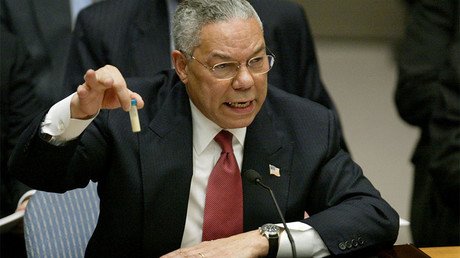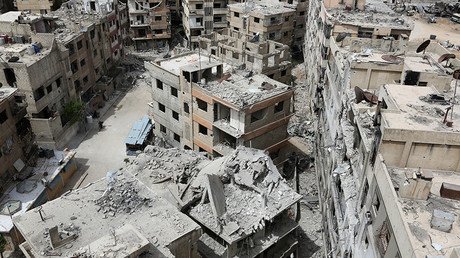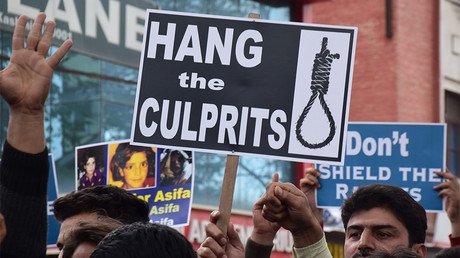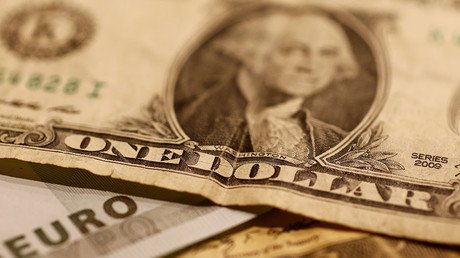My experiences of Vietnam War agitprop make me skeptical of West's excuses for bombing Syria
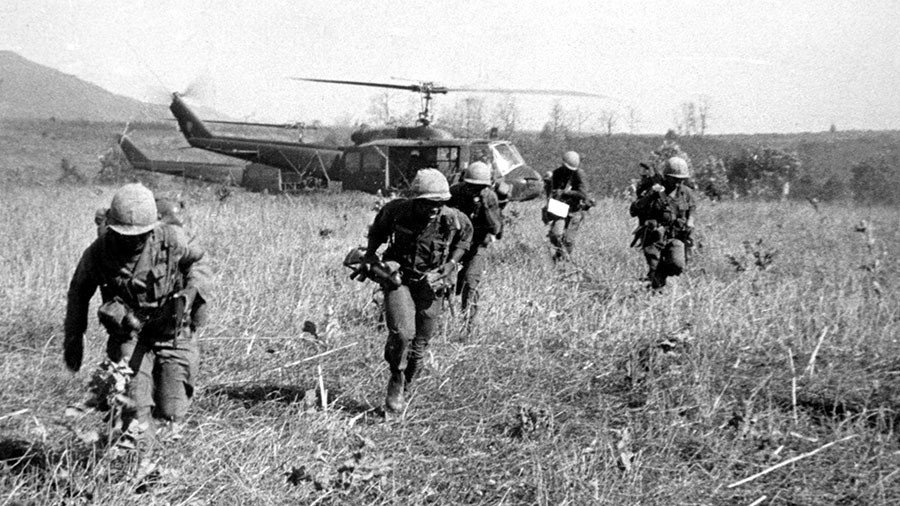
My generation endured fear of the draft because disinformation helped drag our country into a terrible war. That conflict was Vietnam, and the agitprop used to conjure consent for military assaults on Syria now gives me deja vu.
Back in 1972, as a 19-year-old Australian male, I was required to register for the ballot to determine conscription for Vietnam, where my country was allied with the US and South Vietnam against the Vietcong and North Vietnam.
I turned 65 in March. And that's a landmark which can inspire a bit of reflection. Anyway, back in that final teenage year, I hadn't registered, and I wasn't going to. However, had Gough Whitlam's Australian Labor Party not won the election that year, I would have been a draft resister – a stance which would have had surely led to consequences.
As someone raised in a conservative Catholic family when the Catholic Church was playing an actively anti-communist role in Australian society, I had been raised to be willing to "fight for freedom" in Vietnam. What didn't gel with me, however, was that I could be compelled to fight for freedom.
So at University, surrounded by pro- and anti-war groups and demonstrations, I researched, as best I could, the causes of the Vietnam War.
It was portrayed by Australia's then Liberal Party government (the equivalent of the UK's Tories or the USA's Republicans), and a breakaway right-wing element of the Labor Party, as an epic struggle between Good and Evil, as "Freedom" staring down Communism. The Vietnamese were an extension of Chinese communism, which in turn was an extension of Russian communism.
And if we didn't win this battle, the government line held how communists would invade the next country south, and the next, and ultimately bring godless communism to democratic and Christian Australia's doorstep. The mantra that communism was militarily heading towards Australia from Russia and China via Southeast Asia – propelled presumably by gravity – was part of conservative propaganda. In fact, there was even an unsuccessful referendum to ban the Australian Communist Party in 1951.
Colonists versus colonized
The more I examined the historical record, however, the more the Vietnam conflict appeared to be an anti-colonial war, with Australia fighting on the side of the colonizers. The Vietnamese had been promised independence by the French if they supported the Allies in the battle against Japan in WWII. And they obliged, but the French reneged on the deal. In turn, the Vietnamese defeated them; and after the French had been driven out, the US entered the war on false pretenses.
The alleged incidents used to justify the US' war occurred in the Gulf of Tonkin in August 1964. The first was described as an unprovoked attack by North Vietnamese torpedo boats on the US destroyer 'Maddox' operating in international waters. In fact, the 'Maddox' was in Vietnamese waters as part of covert US support for South Vietnamese attacks on North Vietnamese facilities. In the conflict itself, the 'Maddox' fired first on Vietnamese vessels legitimately defending their territory, and it called in airstrikes by US jets as well. The outgunned Vietnamese vessels were heavily damaged, while the total damage the 'Maddox' sustained in the engagement was a single bullet hole.
The second incident did not happen: what was portrayed as an assault by North Vietnamese torpedo boats on the 'Maddox' was probably the destroyer mistaking its radar signals, bouncing off its own rudder, for incoming torpedoes.
As trivial and false as these incidents were, President Johnson used them to justify America's war with Vietnam. Johnson's "Gulf of Tonkin Resolution" was passed unanimously in the Congress; in the Senate, there were only two votes against it.
Almost 60,000 Americans and four million Vietnamese died in that war. Let that sink in: over four million people died because of two "acts of aggression" that did not happen.
After the event, NSA historian, Robert J Hanyok wrote that "the overwhelming body of reports, if used, would have told the story that no attack had happened. So a conscious effort ensued to demonstrate that an attack occurred."
Disinformation disaster
The North Vietnamese won the war that followed, and their next battle gave the lie to the state-sanctioned propaganda that had encouraged young men like myself at the time to believe they were fighting to defend Australia's freedom from tyranny. Vietnam's next conflict did not spread communism further south, but resisted an invasion from communist China in response to Vietnam's invasion of communist Cambodia (which Vietnam had invaded to overthrow the genocidal Khmer Rouge regime, which was backed by China). Thus, so much for the lies we were fed about a unified communist movement targeting democratic Australia.
I hoped that one legacy of that pointless, brutal conflict would be that Western countries would never again persuade their peoples to engage in a war based on fabrications and misguided ideology.
Of course, my hope was not fulfilled. One of the many things killed by September 11, 2001 was the American people's skepticism about its governments use of lethal force abroad. And George W Bush's administration capitalized on the situation to use false allegations that Iraq had "Weapons of Mass Destruction" to justify invading the country.
Then there was Libya. Now there is Syria. The justification for war has shifted from fighting communism, or even fighting Islamic fundamentalists, to what terrible people these dictators are, torturing and gassing their own people. But none of them has been responsible for anything like the four million that died thanks to Johnson's unwarranted war, nor up to a million corpses that decorate George W Bush's military chest.
This brings me to the alleged gas attack in Douma. The idea that the Syrian military would use chemical weapons when it was winning a conventional conflict rings serious "Gulf of Tonkin" alarm bells in my war-weary head. No one living outside the Fog of War in Syria can truly know who actually used those weapons – or whether a chemical attack occurred at all (see Robert Fisk's column) – and yet many journalists in the US and UK have egged their leaders on, and ridiculed those who questioned the government line, rather than displaying the skepticism that is the proper role of the Fourth Estate.
Gullibility, it seems, is more patriotic than skepticism. As I stood against the Vietnam War, I'll happily be called unpatriotic over opposing what the USA, UK and France, all allies of my homeland, have done, and may well do, in Syria.
The statements, views and opinions expressed in this column are solely those of the author and do not necessarily represent those of RT.

